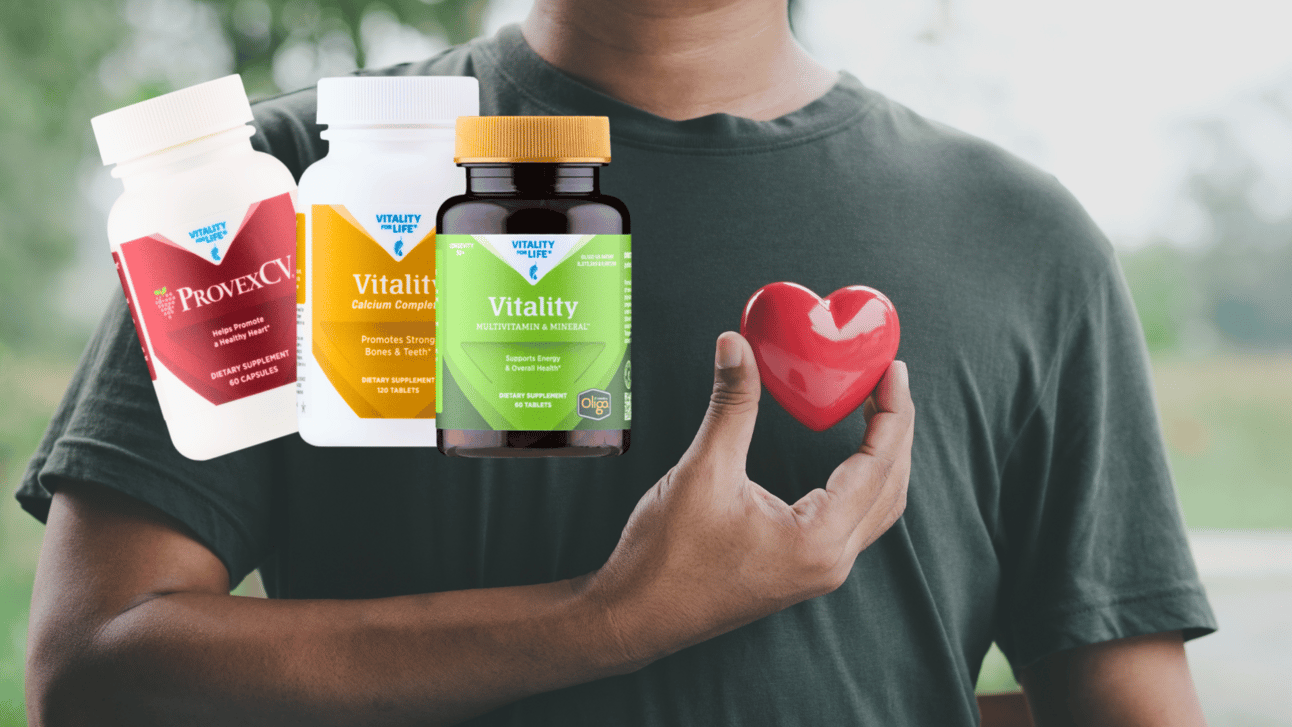
We know that chronic stress can cause undue problems emotionally and mentally. However, besides affecting the emotional part of our body, stress can also affect our heart. According to the American Heart Association, “A stressful situation sets off a chain of events. Your body releases adrenaline, a hormone that temporarily causes your breathing and heart rate to speed up and your blood pressure to rise.”
What You Can Do
Taking care of your body through good health choices is an excellent way to help your body deal with stress internally. Eating a healthy diet and exercising, along with plenty of sleep are the first strategies to keeping your heart strong.
It’s not uncommon when under stress we tend to turn to comfort foods—like cookies, cake, fried foods, etc. Even though they may make us “feel” better, over time these high-fat, high-cholesterol foods can contribute to artery damage leading to heart attacks and strokes. Habits such as smoking, and drinking too much alcohol, can also have an impact on our heart health.
Dr. Bhatt, of Harvard Medical School, says, “Stress does lead to heart disease, but it’s through these established pathways. Breaking the connection, then, is a matter of both relieving stress and managing the unhealthy habits triggered by stress.”
Recent research showed that grape seed extract was found to be “safe and to improve blood pressure in people with pre-hypertension.” ProvexCV helps maintain healthy blood pressure and promotes healthy blood platelet activity improving endothelial function, all good things for your heart.
The Melaleuca Wellness Guide states, “Good nutrition should include the Vitality Pack with Oligofructose Complex and CellWise, along with Provex-Plus. Luminex and Sustain Sport taken as directed can be very helpful as well. Recent studies have shown that anxiety disorders can also have a real physical basis. Experts believe that brain chemistry may malfunction so that some areas of the brain become hyperactive and release norepinephrine, which causes blood pressure to rise with rapid pulse and breathing—the classic symptoms of panic attack. The Vitality Pack is essential, and it may help to throw in an extra Vitality Calcium Complete since the calcium and magnesium will do a lot to relieve anxiety, tension, and nervousness, and promote a sense of calm. Using one or a combination of bergamot, cedarwood, lavender, orange, patchouli, or ylang ylang essential oils in a diffuser also helps promote calm feelings.”
In an American Heart Association study, taking omega-3 supplements not only helped with cognitive health, but also improved heart health by not allowing plaque to accumulate and block blood flow. Omega-3 helps build cell membranes throughout the body, but the body doesn’t naturally make omega-3 fatty acids. We have to either eat foods that contain it or get it through supplements.
Melaleuca has specially formulated several omega-3 supplements to help reduce your risk of heart disease:
Phytomega combines four natural ingredients to help reduce the risk of heart disease. It contains 165mg EPA and 110mg DHA per serving.
CardioOmega EPA is formulated to support cardiovascular health and for activity-induced inflammation. It contains 1000mg EPA and 100mg DHA per serving.
Vitality Coldwater Omega-3 contains the ideal balance of DHA to EPA (2 to 1) at the recommended dose. It contains 270mg of EPA and 660mg of DHA.
Vitality Omega-3 Creme contains 660 EPA and 420mg DHA.
Vitality Prenatal Omega-3 contains 400 EPA and 1000 DHA. It contains the recommended amounts for prenatal and nursing mothers.
One more added benefit to taking omega-3, besides helping strengthen your cardiovascular system, was found in this study as it helps reduce depression and improve moods. For optimal results regarding depression, it is suggested to take a supplement with higher amounts of EPA than DHA.
Angina is a condition that reduces the flow of blood to the muscles of the heart, thus causing discomfort in the chest. However, stress can also cause tightness or pain in the chest as well. While the two have similar symptoms as listed in this article, “the best thing you can do if you have persistent chest pains is talk to your doctor and make sure your heart is in good health.”
When you do have tightness in your chest due to stress, deep breathing exercises have been proven to help reduce both anxiety and stress. Research has shown that deep breathing actually turns off the body’s response to stress and, through time and practice of deep breathing, anxiety lessens, sleep improves, as does emotional responses to stressful situations.
For more information regarding high blood pressure, angina, heart attacks, and other cardiovascular diseases see specific pages within The Melaleluca Wellness Guide.
Don’t forget: Your heart loves you, so love it back.
~ Richard M Barry

